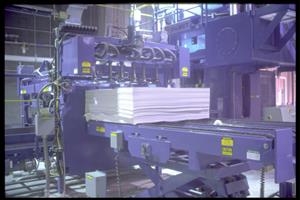
Tradesmen International's recent study of the economy and construction industry projects that the construction sector will be one of the fastest growing areas of the economy over the next few years. Where is your contracting firm positioned to take advantage of this growth? Using a machinery valuation as an asset to leverage your company's value may help you get the best growth from the current boom cycle before we hit the next downturn. Here's a quick look at several ways you can use an equipment valuation to improve your company's growth and solidify your position in the market.
Using Construction Machinery Valuation to Grow Your Company
- Does your equipment still have value, or is it just about shot? Because equipment appraisers spend all day looking at machinery, they have a pretty good idea of what regular wear and tear looks like compared to failing parts that may cause expensive repairs down the road. Use the information to decide whether to repair or replace your aging equipment instead of taking a wild guess at its longevity.
- Can you afford a lot of down time? By knowing what condition your equipment is in allows you to replace it when it makes sense, rather than waiting for it to break down and wreak havoc on your job site. Use the appraisal information to make planned replacements instead of having to make an emergency purchase at the wrong time. This allows you to make the purchase when you're ready.
- Do you really need that much insurance coverage or are you too low? It's hard to decide how much coverage you need on your equipment. When you have an equipment appraiser take a solid look at and value your machinery, it becomes much easier to know how much coverage to retain, especially since an appraisal report from a certified appraiser will hold up well under scrutiny by your insurance carrier.
- Are you ready to get that loan from the bank? The economy is still a little shaky, and financial institutions aren't as willing to put out loans as they were before the recession. Being able to document your equipment's value allows you to provide solid proof of your assets as well as providing a basis for collateral if it's needed for your business loan.
- Are your taxes in line with your equipment's real value? Property taxes are a pain, but if you've noticed a strong upswing in your taxes without a related asset purchase, you may need to fight the appraisal. By having the documentation you need, you can spend less time fighting your appraisal and more time investing the money saved in the process.
- What will that old equipment really sell for in the long run? When it's time to sell that old skid steer, backhoe or loader, are you just guessing what the market will bear or are you basing your asking price on real-world figures? Having an appraisal means you have a solid basis to back up your end of the negotiations.
By taking the time to have a machinery valuation performed on your construction equipment, you can leverage that information to get the best possible growth out of the current upswing. Consider each of these points carefully, then hire a certified equipment appraiser to get a high-quality report you can use for a wide range of purposes.

